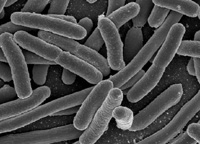Microbes in human guts can help to treat many diseases
Researches analyzed the DNA of microbes in the human distal gut as a "community-of-the whole". It can be considered to be the next frontier in the field of genetic research called metagenomics. Deep inside each of us is a vast ecosystem, as complex as the soil or the oceans, that helps us digest food and contributes to our health and well-being.

Among the findings, published last week in Science: The thriving community contains as many as 100 trillion microbes, representing more than 1,000 species, and includes more than 60,000 distinct genes - twice as many as in the human genome, Los Angeles Times reports.
In the future, healthy individuals could undergo a metagenomic analysis of their gut to determine their immune status and susceptibility to certain diseases.
“The ultimate goal of the work, scientists said, "is to develop tools for clinicians to use in treating disease. With this kind of knowledge, we can use biomarkers to identify the bacterial population of the individual.
Clinicians then can adjust the population of bacteria to make that person well. Such an analysis also would determine which bacteria are resistant to which antibiotics, and help determine the proper drug to administer. To conduct their study, the scientists collected fecal samples from two anonymous people who had not taken any medication for a year.
Then they used molecular analyses to assess the diversity of microbes in the colon. They found, among other things, that the gut-dwelling microbes synthesize vitamins and break down sugars that humans could not otherwise digest.
They hope, down the road, that monitoring or altering genes inside the colon will provide early signs of illness, new ways to optimize nutrition, and perhaps even new ways to predict how much of an oral medication could be absorbed, Medical News Today reports.
Subscribe to Pravda.Ru Telegram channel, Facebook, RSS!


